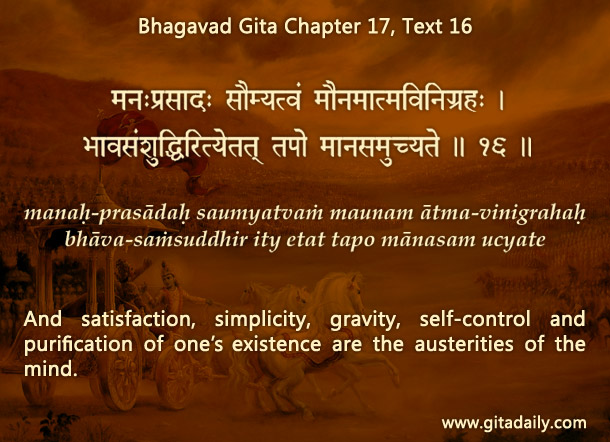Some people feel, “Dissatisfaction is the spur for performance. If we simply become satisfied and give up the desire to excel, how will we achieve anything worthwhile?”
Cultivating satisfaction doesn’t require rejecting all desires per se; it centers on selecting important desires that we strive to fulfill and neglecting stray desires that we protect ourselves from.
Conversely, dissatisfaction is not always a spur to performance. If dissatisfaction becomes our default emotional state, it saps our mental energy and focus. For example, if a sports player is dissatisfied with the many unfulfilled desires in their life, that negativity will distract them from performing. Only if that player focuses on the desire to excel in the game at hand can they perform.
Similarly, we all have innumerable desires – and we can never satisfy all of them. We need to select our important desires and neglect other desires. Neglecting those desires means that we don’t let the dissatisfaction of those desires make us dissatisfied.
Gita wisdom explains that worthiest of all our desires are the desires to love and serve Krishna, for he is the reservoir of the supreme satisfaction. Further, the Bhagavad-gita demonstrates careful channeling of the power of desire. It (17.16) recommends striving for satisfaction as an austerity of the mind. Yet that same Gita lauds Arjuna’s excellence in archery and exhorts him to strive for victory for Krishna’s cause of establishing dharma (11.33) – it doesn’t ask him to be simply satisfied with the status quo. The reconciliation is that cultivating satisfaction as an austerity implies conscientiously withdrawing our mind from unimportant adharmic desires, thus freeing to focus it on worthy dharmic desires.
By thus intelligently selecting our desires, we can pursue both worthwhile achievement in our God-given areas of service and the supreme satisfaction in Krishna.
To know more about this verse, please click on the image
Explanation of article:
Podcast:


KRISHNA BHAKTI is the only way to cultivate all satisfactions.